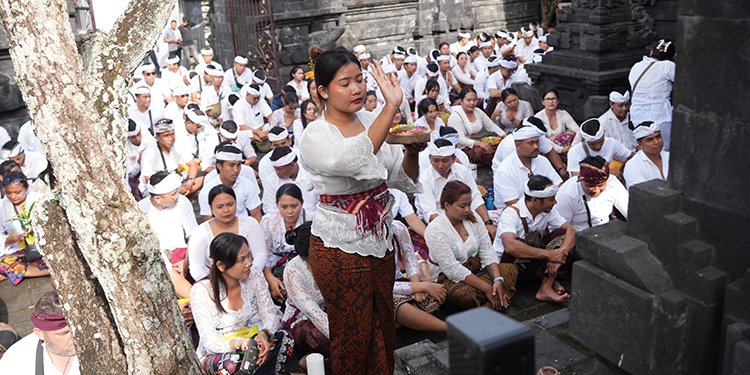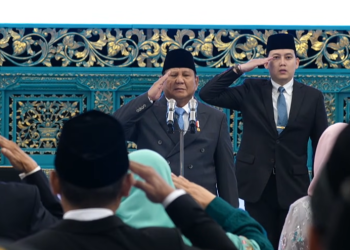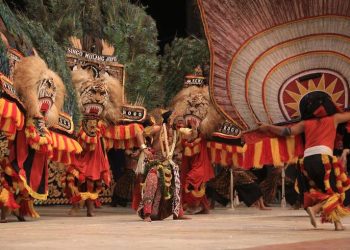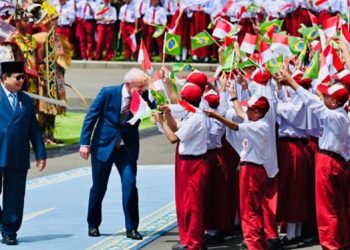Bali, Indonesia Sentinel — Bali, renowned for its deep-rooted Hindu traditions and spiritual rituals, is home to a sacred ceremony known as Guru Piduka. This ritual serves as a means of seeking forgiveness for past transgressions, both intentional and unintentional, while restoring harmony with God, ancestors, and nature.
More than just a religious practice, Guru Piduka reflects the Balinese philosophy of balance and interconnectedness, reinforcing the belief that every action has consequences and that reconciliation is essential to maintaining spiritual order.
The Spiritual Philosophy Behind Guru Piduka
In Hindu teachings, life is governed by karma, the principle that every action—whether good or bad—will yield corresponding results in the present or future. Guru Piduka is performed to neutralize negative karma, acknowledging human imperfection and the need for divine intervention to restore balance.
The term “Guru” signifies respect toward higher beings, while “Piduka” translates to sin or wrongdoing. The ritual is conducted to apologize for mistakes that might have disturbed the spiritual equilibrium, whether by violating religious customs, disrupting sacred spaces, or encountering misfortunes believed to be signs of imbalance.
How the Guru Piduka Ceremony Is Conducted
The ritual varies in complexity depending on the severity of the wrongdoing, but it generally follows a structured process led by a Balinese Hindu priest (pemangku or sulinggih). The key stages of the ceremony include:
1. Preparations for the Ritual
Before the ceremony, offerings (banten) are meticulously arranged, each carrying deep symbolic meaning. Some of the essential offerings include:
- Daksina – a primary offering representing devotion to God
- Pejati – offerings to seek divine blessings
- Byakala – spiritual purification offerings
- Banten Guru Piduka – a dedicated offering used specifically for atonement
The priest, who acts as the spiritual mediator, prepares himself through fasting and prayer before conducting the ritual.
2. The Ritual Process
- Spiritual Cleansing (Melukat)
Before participating in the ceremony, individuals undergo melukat, a ritual purification with holy water (tirta) to cleanse both their physical and spiritual selves. - Prayers and Offerings
The priest leads a series of prayers, invoking Ida Sang Hyang Widhi Wasa (God), deities, and ancestral spirits. Offerings are presented to seek divine forgiveness. - Symbolic Expression of Apology
Through prayers and sacred mantras, participants express their remorse, hoping to restore balance between humans, nature, and the divine. - Holy Water Blessing (Tirta Cleansing)
The priest sprinkles tirta onto the participants, symbolizing spiritual purification and acceptance of their plea for forgiveness. - Closing Ritual and Blessings
The ceremony concludes with final prayers, after which the priest bestows divine blessings upon the participants.
When Is Guru Piduka Performed?
Guru Piduka is a flexible ritual that can be conducted at any time based on individual or communal needs. However, it is commonly performed on sacred days in the Balinese Hindu calendar, such as:
- Purnama (full moon)
- Tilem (new moon)
- Kajeng Kliwon (a spiritually powerful day)
The ritual is also conducted in response to specific incidents, such as:
- Errors in religious ceremonies
- Violations of sacred customs
- Unexpected misfortunes that suggest a spiritual disturbance
Guru Piduka’s Role in Balinese Society
Beyond its religious significance, Guru Piduka plays a crucial role in maintaining social harmony. The ceremony aligns with Tri Hita Karana, the Balinese philosophy emphasizing the balance between humans, nature, and the divine.
By acknowledging mistakes and seeking reconciliation, the ritual fosters self-awareness, humility, and responsibility—values that are deeply ingrained in Balinese culture.
Read Also:
Atlas Club Bali Holds Guru Piduka Ceremony to Apologize for Religious Controversy
Why Guru Piduka Remains Relevant Today
Despite modernization, the Balinese people continue to uphold Guru Piduka as a fundamental spiritual practice. The ceremony serves as a reminder that humans are imperfect, but they can seek forgiveness and realign themselves with the forces that govern life.
In an era where personal accountability is often overlooked, Guru Piduka offers a timeless lesson in self-reflection, atonement, and spiritual renewal.
Conclusion
Guru Piduka is more than just a religious ceremony—it is a spiritual journey of introspection and redemption. Rooted in centuries-old traditions, this ritual ensures that harmony is maintained within the Balinese community and beyond.
As the world becomes increasingly fast-paced, the principles behind Guru Piduka—seeking forgiveness, restoring balance, and embracing humility—remain as relevant as ever. Through this sacred practice, Bali continues to preserve its spiritual heritage and its unwavering commitment to cosmic harmony.

























